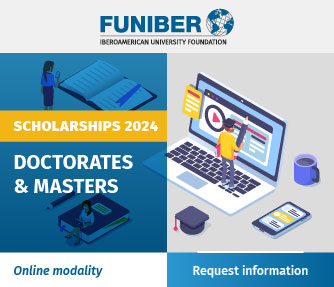MLS Communication Journal
ISSN: 2792-9280
Welcome to the MLS Communication Journal! This scientific publication aims to create a space for discussion and debate, based on a collection of articles derived from projects and research addressing the field of communication from different perspectives and approaches as its main area of study.
We encourage you to submit your work on the different disciplinary fields of communication and their respective areas of confluence and mixture: journalism, advertising, audiovisual communication, interactive communication, or communication within organizations, among others. The journal specifically focuses on the publication of academic and scientific papers that identify, describe, and disseminate unpublished and interesting findings in these fields, from the theoretical review, methodological innovation, experimentation, and the commitment to innovation.
Latest articles
Accepted articles
The concept of reality is in crisis. To be more precise, the mediation of reality is in crisis due to issues such as fake news, the emotional dissemination of content that appears to be informative, posturing on social media, the virtualization of experiences, and synthetically generated content. In parallel, new formats, heirs of non-fiction, have emerged in recent years to account for a different relationship with the real. Beyond journalism, there are creative non-fiction narratives, interactives, 360º documentaries, VR documentaries, and documentaries through Instagram Stories. The aim of this research is to delve into the characteristics of these new formats and their relationship with the real through Multimodal Discourse Analysis. The sample includes six avant-garde projects that address topics such as climate change, sexism, cultural repression, suicide, sexual diversity, and identity. It is concluded that most of the analyzed projects present a symbiosis of form and content to enhance their messages. The strongest link to the real lies in the revelation and elevation of the authorial voice. These forms are committed, purposeful, and combative in representing reality, but somewhat conservative in the performativity for change that opens up in the connected digital context.
The development of teachers' media literacy and digital competence emerges as a 21st century challenge in Primary Education. This study aims to analyze teachers' digital competence through a systematic review of the literature since the publication of the European Framework DigCompEdu in 2017. The methodology used is qualitative of a descriptive nature and a review of 25 articles from two of the most prestigious databases (WoS and Scopus) has been carried out. The results show an increase in publications during the health crisis by COVID-19 and highlight the use of the TPACK model, as well as the influence of gender and age on the level of teaching digital competence. It is concluded that it is essential to continue developing training strategies to improve the digital competence of educators, considering demographic and contextual factors.












